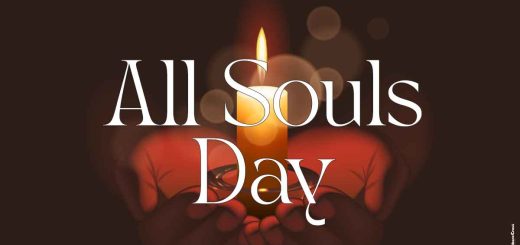A peace the world cannot give
Ever since I chose the theme for the Easter month of April namely, �A peace the world cannot give�, I have been mulling over what that statement really means.
It was part of the Last Supper discourse from John�s gospel and similar words were also used as his greeting after the Resurrection by Jesus saying to his disciples: �Peace I give you. My own peace. A peace the world cannot give.�
Each sentence is significant, particularly at this time with so much non-peace in the world. Peace can be seen as the absence of war. It is most often seen as tranquillity and calm. One description for peace as �the tranquillity of order� takes it a bit further. Things have to be right not just calm, so some action is required.
I interviewed Fr Sean O�Leary of the Denis Hurley Peace Institute on the question, and he began by saying �people are inherently good�, meaning most people, as he did admit that there are those leaders who have exceeded the bounds of reason and may even be incapable of rational judgment. Most people are concerned for a better world, for themselves and for their children.
Is that not the kind of peace Jesus brings, a peace of right relationships, not a peace of worldly benefits, of exerting� power and control over others,� of oppression and suppression? Such a peace is either self-interested or a tit-for-tat situation: �if you don�t shoot/steal/misbehave, I will do the same�, or vice versa.
My question concerns the motivation to achieve the peace Jesus brings? Where is the goodwill to give, forgive, share and sacrifice for others coming from if not from a relationship with him, a surrender, trust, letting go, letting God. Jesus himself has been our model, been there, done that. He doesn�t have the T-shirt, he has the cross�and I could not even hazard a guess as to how many crosses exist or are displayed in and on churches, homes, classrooms, round necks and in pockets.
But it is not only about the cross. We are not just Good Friday people. We are Resurrection people who can experience the joy�and peace�of renewed life, new life. Maybe our attitude needs looking into and changing.
All this applies equally to family life. Keeping peace as a means to avoiding conflict and violence is a false peace. Authoritarian parenting, just being the boss and instilling fear rather than genuine respect, is a false peace. Authoritative parenting, which is still not necessarily democratic, applies discipline but respects the rights of the child too. �He who loves disciplines a child�, taken from the book of Proverbs, is the May family theme.
Every family, some more so than others, have their moments of peace, when all is well with their relationships and, like peace at any level, it needs to be worked for. But families do have the undoubted advantage of the natural love that is at the heart of family life and exists even in troubled families. This itself is the love of God.
Fr Michael Murphy, in the current issue of Marriage and Family Living magazine, gives an imaginative description of the peace the world cannot give: �Lost in safe hands�, like a little child totally trusting of its father, lost in the hands of Jesus.
Our task is not only to lose ourselves but to provide those safe hands for others, starting at home, and especially for those most vulnerable, our little children, teenagers, older people. If our children do not experience peace at home how can they become peace-loving citizens?
May has been designated by our bishops as a month to focus on Family and Life. The invitation is issued to the whole Church, not just those directly involved in family ministry. Let us all work to strengthen our own and all other families. Let us pray for a greater awareness of the need to build and heal the relationships of the many families that are broken and hurting.
That is the way to achieve the peace of Jesus, the peace the world cannot give.
- How We Can Have Better Relationships - August 26, 2024
- Are We Really Family-Friendly? - September 22, 2020
- Let the Holy Spirit Teach Us - June 2, 2020





